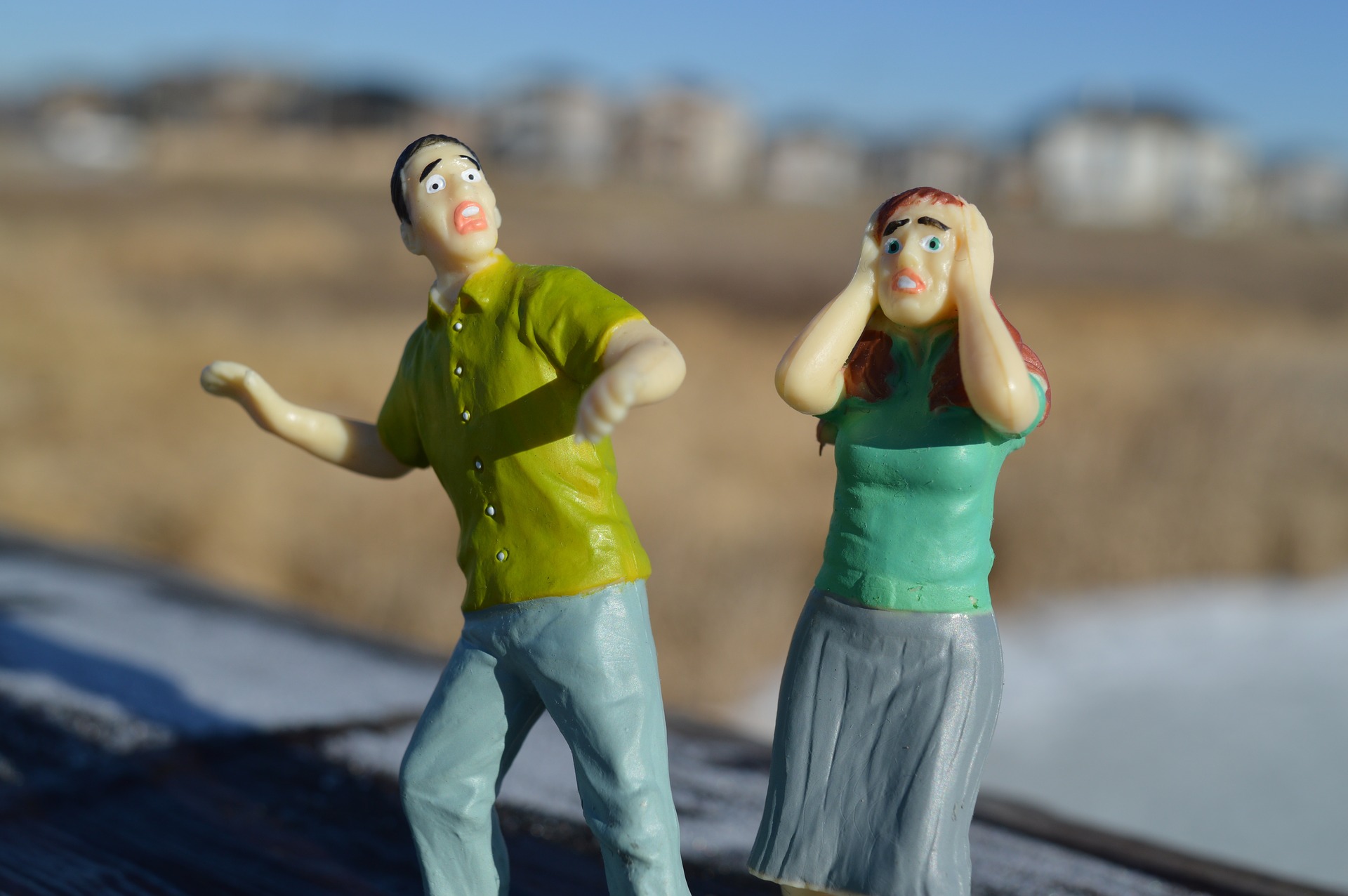Dealing With BPD (Borderline Personality Disorder)
Have you looked up online “BPD test”, “BPD meaning”, or “Borderline Personality Disorder”?
Do you find yourself looking up signs and symptoms of BPD?
Do you tell your therapist “I think I have BPD”?
TW: this article discusses suicidal thoughts and self-harm topics
What does BPD Mean?
You may have googled “BPD meaning”? Many people hear about Borderline Personality Disorder, but don’t know much about it. Overall, someone with BPD feels emotions very intensely. As mentioned in our “Simple Ways to Improve Your Emotion Regulation” article, people with Borderline Personality Disorder may experience extreme episodes of:
- sadness and depression
- anxiety
- anger
- shame
These emotions are strong and can be challenging to cope with. People with BPD struggle with emotional regulation. In simple terms, we all have emotions, that is, emotional regulation is the overall maintenance and response system to these emotions. When someone has controlled emotional regulation, they are able to respond to stressful situations in a healthier way. Generally, when someone has BPD, this can be challenging to do.
What Causes BPD?
You may be wondering why people get BPD. Someone can develop this disorder for many reasons. According to the APA, research suggests that personality disorders can be due to genetic factors. Studies show that people who have family members with BPD, especially when these family members are closely related, face higher risks of development.
Also, the experiences people go through, especially as children can put them at risk for BPD. If someone went through trauma as a child or any scarring event, this can impact them greatly. According to the APA, verbal and sexual abuse put people at higher risk of developing BPD. meaning
Symptoms of BPD
Having BPD makes emotions very intense. In other words, these emotional state of a person with BPD can change drastically from one second to the next. These strong feelings and emotional flip-flop can be very overwhelming to people with this disorder. As a result, these emotional struggles lead to many different issues.
The DSM-5 identifies 9 symptoms of Borderline Personality Disorder:
Fear of Abandonment
Sadly, people who have BPD fear abandonment and rejection. If someone went through emotional neglect or abuse as a child, they fear that others will do the same to them.
As mentioned previously, the emotions of someone with Borderline Personality Disorder are very intense and fast-changing. For example, Liam has BPD. Liam and his friend Tyler text all the time. Tyler starts getting crammed with school assignments and begins answering Tyler less frequently. bpd meaning
Sure enough, Liam senses this change in conversation and gets upset. Since Liam has BPD, his feelings grow intense. Tyler answering less and less makes Liam feel like he is getting abandoned. Liam starts fearing the worst, and decides to cut Tyler off. People with BPD may feel like they have to reject people before they get rejected – this is like a defense mechanism.
Rocky Relationships
Another important factor is, people with BPD can experience difficult relationships with others. That is, people with this disorder tend to experience idealization and devaluation of people and themselves. For example, Liam thinks that Tyler is the greatest person he has ever met. In Liam’s eyes, Tyler can do no wrong. When Tyler lets Liam down, Liam is crushed. In response, Liam now looks at Tyler as a terrible person – Tyler has been knocked of his pedestal.
Besides, people with BPD can experience very black or white thinking – all or nothing. Liam struggles to see the layers of the situation. Tyler did want to go to the beach but had a family emergency. Unfortunately, Liam only feels the hurt from this disappointment and know looks at Tyler as bad.
These emotions and high standards can make it hard for relationships to feel stable for people with BPD meaning
Unclear Self-Image
Additionally, people with BPD find it hard to develop a clear self-image. This can cause them to be highly critical and harsh of themselves. People with this disorder also find it hard to define themselves. This can lead them to feeling lost and empty. bpd meaning
For example, Liam finds it hard to define his beliefs and ideas. He is constantly jumping from one thing to the next. Liam also dyes his hair a different color each week and often gets new modifications to his body – like piercings and tattoos.
Impulsive and Reckless Behaviors
In terms of behaviors, people with BPD tend to be impulsive. These actions can have great risks on their lives and put them in danger. These behaviors include:
- gambling
- binge eating
- high-risk sexual behaviors
- drugs/alcohol use
Suicidal Ideation and Self-Harm in BPD
The most concerning about people with BPD is, they can feel suicidal and engage in self-harming actions. These actions include things like cutting or binge-eating. In this study, adolescents were more likely to participate in suicidal thoughts and self-injury than adults.
Affective Instability
As mentioned before, people with BPD can have their moods change instantly and harshly. They may experience the following:
- Intense mood swings that are hard for them to cope with;
- Small triggers could affect moods big time;
- Difficulty with emotional control and regulation;
- Reactions can include depression, anxiety, insecurity, jealousy, anger, shame, paranoia, resistance, and attachment.
Inappropriate Anger in BPD
People with BPD can have extreme anger issues and express these emotions at inappropriate times. In the example used about Liam and Tyler. Liam was very upset with Tyler for cancelling their plans even though Tyler had a valid excuse.
Some people may think that Liam is being “dramatic” over the situation. Liam’s Borderline Personality Disorder causes him to feel his emotions intensely and this includes his anger. Liam is very angry and hurt that their plans were ruined.
Chronic Feeling of Emptiness in BPD
Still, many people with BPD feel empty inside. This emptiness can be constant and live inside them for a long time. Researchers, attribute this empty feelings to the disconnect people with BPD feel from others and themselves.
Stress-Related Paranoid Ideation
Often, people with BPD might feel paranoid. Paranoia makes someone stressed that they are being constantly watched, judged, and put in danger. Paranoia stresses people out and makes them feel unsafe on a daily-basis.
Ways to Cope with BPDMeaning
Now that the answer to “What does BPD mean?” is more clear, let’s talk about ways to better handle this disorder.
Work on Emotional Regulation
Emotional regulation issues are common in people with BPD. That is, it can be hard to keep your emotions in check. In our past article, some ways we listed to improve emotional regulation are:
- Aerobic Exercise:
- Zhang et al. found that exercise helped to improve implicit emotional regulation. This study suggests that aerobic exercise practices affected parts of the brain that deal with emotional regulation and helped enhance this ability in participants.
- Eating and sleeping well:
- Research suggests that filling your body with nutritional foods and eating right can enhance your cognitive abilities.
- Being creative
- This study found that doing creative activities can affect people’s emotional responses.
Work on Self-Esteem
In this study, it was found that self-esteem and resilience can help protect abused children from developing Borderline Personality Disorder.
In our recent article, “Self-Sabotage In Relationships: Why You Do It And How To Stop It,” we shared some self-esteem building tips. These tips include:
Self-Esteem Building
- Exercise: Exercise helps boost good feelings and chemicals in your body like endorphins.
- Positive self-talk: gratitude: Since people who have BPD tend to beat themselves up, try being kinder to yourself. You deserve love and respect, always!
- Practice Gratitude Be more grateful for life. Here are some great tips to enhance gratitude in your daily-life.
Lean on and Find Support for BPD
Lean on support in challenging times. If you feel comfortable, communicate to loved ones or friends that you have BPD. Tell them what your emotions and symptoms are like so they can try to understand and support you in their own way.
No one can fully understand what it is like, let alone accepting other people with BPD. Finding support groups or forums to join can help you feel more understood.
Seek Therapy
Notably, therapy can be good for people with BPD. Some therapy practices that may help are:
Dialectic Behavioral Therapy (DBT) for BPD
DBT specifically helps people with emotional regulation. Furthermore, in DBT, Dialectic means to assign both acceptance and change as necessities for improvement. DBT helps people handle their emotions more effectively and lead a more productive life. It focuses on some of the common symptoms of BPD including impulsivity, exaggerated mood changes, unstable relationships, poor sense of self, and the fear of abandonment. DBT also helps people with BPD to work on skills such as distress tolerate, emotion regulation, and effective interpersonal behaviors.
Emotion Regulation Therapy
Emotion Regulation Therapy (ERT) targets emotional regulation issue. ERT helps participants better understand and accept their emotions. It provides them with the tools to better respond to challenging situations and decrease the use of emotional avoidance strategies.
Cognitive Behavioral Therapy (CBT)
CBT focuses on taking your negative thoughts and reframing them to be healthier and more realistic. Examples of CBT techniques include cognitive restructuring and behavioral changes. For instance, reducing self-defeating behaviors and learning how to respond to problems with more adaptation. In cognitive restructuring, a patient is taught to identify negative reactive thoughts and modify them.
Mentalization Based Treatment (MBT)
Mentalization-Based Therapy (MBT) is a type of psychodynamic therapy designed to treat borderline personality. The process of mentalizing, or the capacity to understand how actions are influenced by mental states, is the focus of MBT.
Anger Management:
Talking to a therapist about anger management can be beneficial. Especially since people with this disorder struggle with controlling their emotions, working on keeping their anger in check can help! Check out our other article for more.
If you have BPD, remember:
You are so strong! Having this disorder is hard. The fact that you go through these intense emotions and challenges shows your resilience. You may feel like it is hard to understand you or your feelings. Know that there are people out there who understand your experience and want to help.
Our therapists at Mind Connections want to offer any support they can. Our therapists know all about BPD. We can help with anger management, anxiety, depression, stress, and BPD overall, Call for a free 15 minutes to see if our services can assist you! We want to hep you live your happiest and healthiest lives!
Content Creator, Victoria Gallo; Reviewed by Dr. June Cao







Thanks a lot for the information on BPD. I need to know more about this to help my girlfriend with borderline personality